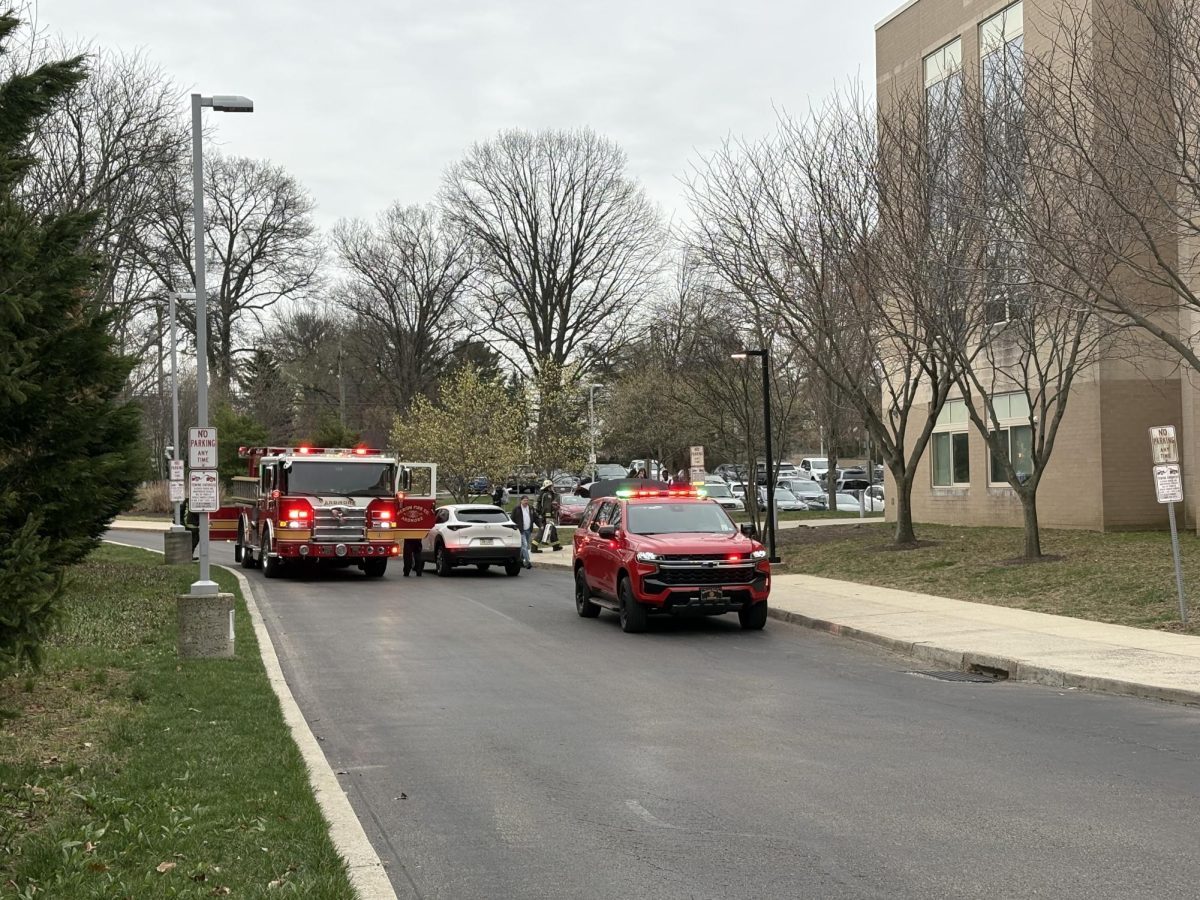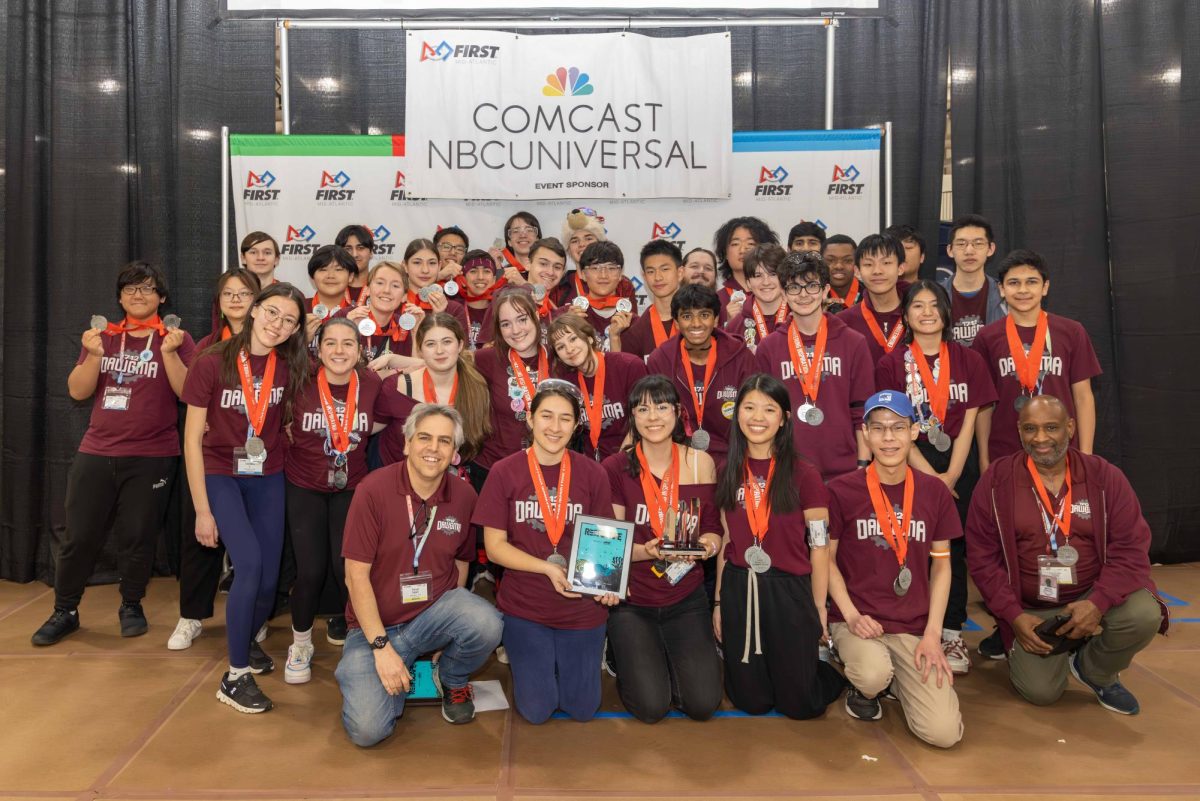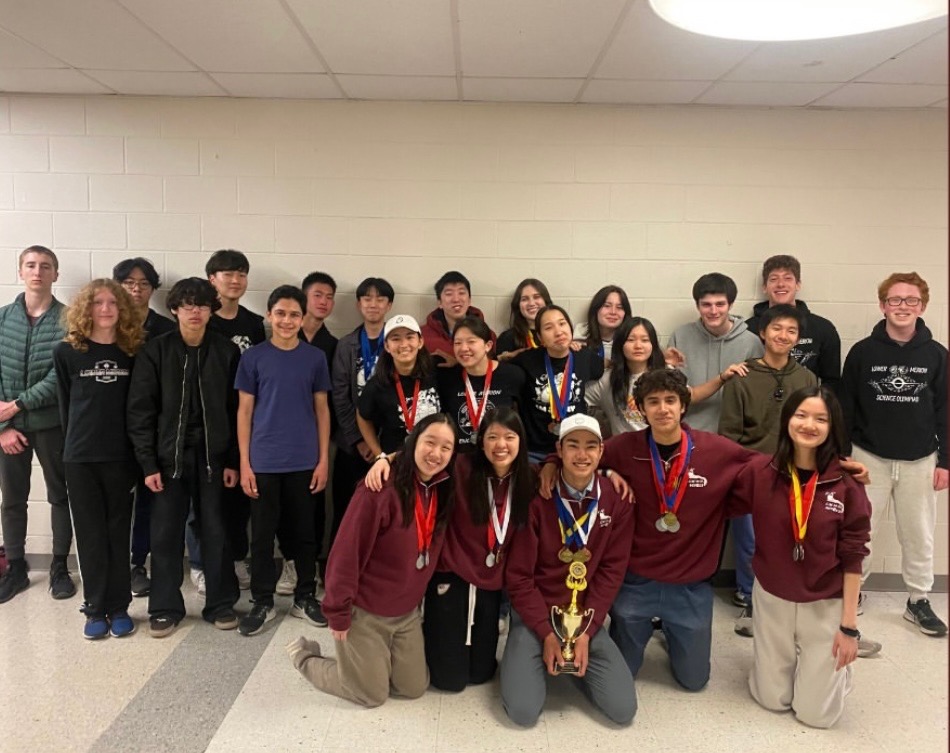In the three months since Sean Hughes’ passing, LM has been forced to continue the 2021-2022 school year without its integral head. While the space left by Hughes is undeniable, Dr. Jim Scanlon has taken up a post as interim principal until the position can be
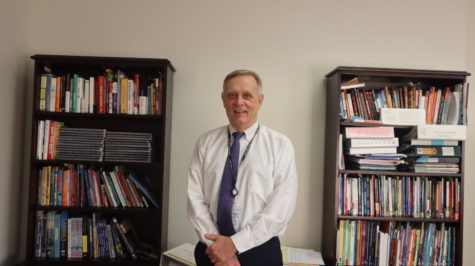
permanently filled. Having initially retired from his post as superintendent of West Chester Area School District this past August, he decided to temporarily come out of retirement to work at LM. In an interview with The Merionite staff, Scanlon described how he was drawn out of retirement partly because of his previous experience with the passing of a principal during his tenure as superintendent: The year prior to his retirement, the principal of West Chester Middle School passed, and reading about Hughes resonated with him enough for him to “put his golf clubs down” and get back to work.
No transition in leadership is without complications, though. Since Scanlon has taken up the role of interim principal, disciplinary and organizational policies have brought frustration and confusion from the LM community. Some concerns come from the notable change in enforcement of previously relaxed policies, but others have sprouted from rumors. Scanlon claims that he ultimately aims to restore LM to its state pre-lockdown: a state of school he has not himself seen. Much of the student body has been left wondering if LM students are at risk of losing their independence, a core tenet of former principal Hughes’ philosophy.
As stated by Scanlon, he has not really “put any new policies in,” since taking over. Despite that, rules regarding teacher absences and the library have seemingly shifted. Previously, when a teacher was absent, underclassmen would be expected to sign into the cafeteria and upperclassmen in the library. In an effort to return to a pre-COVID-19 procedure, Dr. Scanlon has worked towards returning underclassmen to classrooms even when teachers cannot attend themselves, bringing back coverages and substitutes. “Many students weren’t going to the cafeteria, they were wandering around and not doing their work,” Scanlon says, emphasizing the need for a structured setting.
While underclassmen are experiencing a return to coverages and substitutes, similar to the pre-COVID-19 era, many upperclassmen are suddenly unsure of where to go during a teacher absence. The policy of juniors and seniors signing into the library changed to them signing into the cafeteria but students were not explicitly informed. Recently, students have gone to the library to sign in, but often find that they are not allowed in.
“The new rules & communication are not clear at all,” says Maria Dymek ’23. “Every time a teacher is out, I have no idea where to check in, so I have to go to the classroom, library, and cafeteria–which is such a hassle.” With such confusions, students lose valuable study time, or get marked absent for a class they mean to attend. In response to this first concern, Scanlon, says adamantly that the library is still meant to be open for students who either have a free or an absent teacher–as long as it remains under capacity of 120 students, which is a COVID-19 related policy. It is unclear as to how this COVID-19 policy relates to where juniors and seniors should sign into class.
Additionally, the amount of students allowed at each table in the library is another COVID-19 policy that has recently become strictly enforced. Many students are upset that this limits their ability to be social during lunch. As Aiko Palaypayan ’23 remarked, “There was no need to be four to a table when the school is at a 100% capacity rate. There is no social distance in classrooms or hallways, so why do we have to social distance in the library?” To clarify any confusion from the student body though–these policies were not created by Scanlon, but have been enforced in a greater effect than before, to the dismay of many students. In fact, some students cite strict regulation of the library as a reason for breaking rules. According to a student who wishes to remain anonymous, “The changes have definitely made people more rowdy to push back. Everyone is confused, unhappy, or both.”
According to library aide Maura Gorman, administration ultimately aims to morph the library into a space conducive to both studying and collaboration, “We would like to have more of a working space, learning space, it can be collaboration. But we don’t want those students who are trying to work and study to be interfered with as well as those in classes who are troubled.” This sentiment is echoed by Scanlon, who supports the benefits of student collaboration in the library that does not inhibit the ability of other students to learn. However, the misinformation surrounding the shifting library situation also comes to the frustration of the librarians themselves. Gorman further reiterates, “I feel like we don’t get to rebut things that are said about the library. Things are being put on Facebook and other community groups, if you aren’t telling our side of the story there will be misinformation out there.” With increased speculation regarding the current situation and potential future of the library, the LM staff and students remain caught in a purgatory-like state of confusion until the situation is clarified.
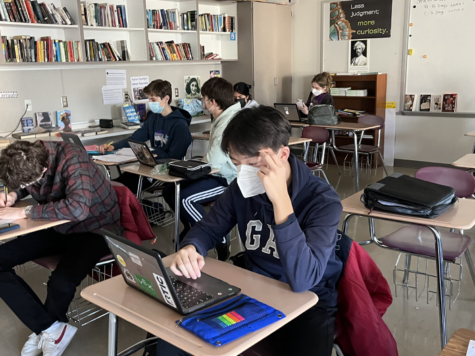
Furthermore, a legitimate shift in the LM community is in discipline. Like with the library, Scanlon has not created new policies regarding discipline, but still seeks to enforce them. This includes that of the closed campus; students are not permitted to leave and return during the day. He described, “During the day we want kids to be in the school for accountability purposes so we know we’re everyone is. It can be a question of safety.” He says that students can still come late or leave early when they have free seats as usual, but beyond that, any discussion of an open campus is for a future principal to decide. “I don’t think it’s my role to open the debate up. I think we have to get through COVID-19 and get to the end of this year and see where we are.”
But strict enforcement of the closed campus is not where the discipline seems to end. Dymek, a swimmer who often sits near the pool during free sets, reports that campus aides have started banning her from sitting there. Furthermore, she is unnerved by an apparent growth in policing. “I’ve seen more cops in and outside the school,” says Dymek. “It makes me really uncomfortable, because LM is a place to learn, not to feel unsafe.”
As subtle shifts in library regulation and discipline occur, many students worry over their independence. Will they lose their free sets? Is Lunch and Learn, a beloved creation of Hughes, at risk of elimination? On those notes, students can breathe easy. No such restriction is set to occur. Scanlon has no plans of eliminating Lunch and Learn, and feels it is a policy that the LM community should take advantage of.
Overall, many changes in the school since the transition in power are not quite as concrete as they seem. Much remains unclear about the actual rules in place, and the source from which they come. Many students describe a changed school atmosphere, but how much of that is due to a new principal? Additionally, students and staff both have mixed opinions on the discipline. Will stricter discipline enforcement help? Or is it the cause of students acting out? Regardless of such questions, though, Scanlon has four goals for the last four months of the school year: to prepare the building for the new principal, for seniors finish out the year strong, to put together an equity team with an equity director to evaluate district equity work, and that everyone is learning to the best of their ability.
Update:
On Friday, February 11, Dr. Scanlon officially clarified much of the confusion relating to the library, as well as established officially some new policies. Juniors and seniors are now expected to sign into the LGI when a teacher is absent. They should, barring any space difficulties, be permitted to remain in the LGI, go to the library, or move to where they please for the rest of the set. Another update—the library capacity is now set to 101, not 120. The previous number came from Scanlon’s interview with The Merionite staff, however he has since informed the school via email that 101 is the maximum seating capacity.
In Scanlon’s email, he also established guidelines regarding behavior in the library. He wrote, “Discussions are permitted and encouraged, however if a student gets too loud, or is otherwise disrupted, that student will be redirected.” A student may be barred from the library if they are continued to be asked to quiet down.


